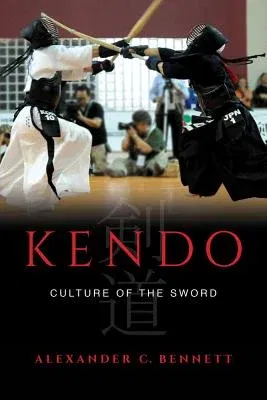Alexander C Bennett
(Author)Kendo: Culture of the SwordHardcover, 31 July 2015

Qty
1
Turbo
Ships in 2 - 3 days
Only 3 left
Free Delivery
Cash on Delivery
15 Days
Free Returns
Secure Checkout

Print Length
328 pages
Language
English
Publisher
University of California Press
Date Published
31 Jul 2015
ISBN-10
0520284372
ISBN-13
9780520284371
Description
Product Details
Author:
Book Format:
Hardcover
Country of Origin:
US
Date Published:
31 July 2015
Dimensions:
23.11 x
15.24 x
2.54 cm
Genre:
Asian - Japanese
ISBN-10:
0520284372
ISBN-13:
9780520284371
Language:
English
Location:
Berkerley
Pages:
328
Publisher:
Weight:
589.67 gm